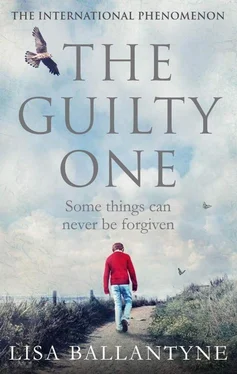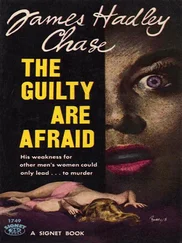He put the box on the kitchen table but still did not open it to see what it contained. Instead, he ate his curry quickly, hunched over the table in the box’s shadow, then had a shower. He made the shower too hot and leaned into the jet, holding on to the nozzle with both hands. His skin stung as he towelled himself dry. He stood naked in the bathroom, looking at his face in the mirror as his skin chilled, and thought of the kestrel he had seen hovering over the Brampton moors. He felt himself to be alone and unyielding, stiffening his wings and rising on a thermal.
The last two days left him cowed, but he didn’t know if it was fear of the boy’s case and all that it implied, or fear of her loss – fear of life knowing that she was gone; he didn’t need to ignore her any more.
Loss. Daniel considered as he rubbed a hand across his chin and chose not to shave. Loss. He wrapped a towel around his waist and exhaled. Loss. It was like everything else. It could be practised. He almost did not feel it any more. His mother was gone and now Minnie was gone; he would be fine.
Daniel dressed and began to leaf through Sebastian’s case. He hoped that Irene would still be free and willing to take it on. He would call her clerk first thing. He and Irene had worked closely on several cases but particularly on Tyrel’s gang shooting the previous year. They had both been devastated when Tyrel was convicted.
The last time he had seen her was at the party to celebrate her promotion to QC in March, although he had barely managed to say two words to her. She was a Londoner, born in Barnes, and several years older than Daniel, but she had read Law in Newcastle. She liked to try to impress him with her Geordie. Daniel couldn’t bear to think of anyone else defending Sebastian.
Alone in the flat, Daniel found that he couldn’t sleep, so he settled down to work. His clerk had already watched the CCTV tapes which had been released to the defence through disclosure. Daniel watched them again, in case they had missed something. During the day, the cameras were mostly facing Copenhagen Street and Barnsbury Road, turning to focus on the park after 7 p.m. Daniel fast-forwarded to flashes of the park, but there were no unaccompanied children, no one else who seemed suspicious.
It was after one o’clock in the morning when he finished writing notes on Sebastian’s defence and only then did he lift the lid of the cardboard box which Minnie had left for him. It contained what he expected: his school photographs, photos of picnics on the beach at Tynemouth. There were his medals from primary school and prizes from secondary school, drawings and paintings that he had done for her as a child, an old address book of Minnie’s.
There was the framed photograph that had sat on her mantelpiece, showing Minnie with her daughter and her husband. Her husband was holding the little girl in his arms and she was blowing bubbles that drifted over Minnie’s face. As a child Daniel had marvelled at this picture, because of Minnie’s youth. She was slimmer, with short, dark hair and a large white smile. He had to look carefully at the photograph to find her features as he knew them.
At the bottom of the box, Daniel’s fingers found something cold and hard. He finished his beer as he liberated the object from the cardboard depths.
It was the porcelain butterfly, its blue and yellow brighter than he remembered. It seemed cheap. There was a chip on the wing but it was otherwise undamaged. Daniel held it in his palm.
He thought about her gathering up these things and putting them aside for him, about her illness and how that would have manifested. He imagined her asking the nurse to help her sit up in her hospital bed, so that she could write to him. He could almost see her, making small sighs at the effort, the shine of her blue eyes as she signed the letter, Mam. She had known then she was dying. She had known that she would never see him again.
He tried hard to remember the last time he had spoken to her. All these years but never a birthday or a Christmas passed without her cards and phone calls. Last Christmas he had gone skiing in France. She had left two messages and sent a card with a twenty-pound cheque inside. As he always did, he deleted the messages, ripped up the cheque and put the card straight into the bin. He felt a twinge of guilt at the aggression implied in these acts.
It would have been on his birthday in April when he had spoken to her last. He had been in a rush; otherwise he would have checked and seen her number before he picked up the telephone. He had been late home from work and was now late for dinner.
‘It’s me, love,’ she had said. Always she spoke with the same familiarity, as if they had seen each other only last week. ‘I just wanted to wish you happy birthday.’
‘Thanks,’ he had said, the muscle in his jaw throbbing. ‘I can’t talk now, I’m trying to go out.’
‘Of course. Going somewhere nice, I hope.’
‘No, it’s a work thing.’
‘Oh, I see. And how is your work? Are you still enjoying it?’
‘Look, when are you going to stop?’ he had shouted. She had said nothing. ‘I don’t want to speak to you.’
Daniel remembered waiting for a response before he hung up. She might have known about the cancer by then. He had hung up but then thought about her for the rest of the night, his stomach tight with anger. Or had it been guilt?
The music from the funeral was still lilting in his mind. He remembered Harriet’s accusing tones, as if it had been his fault, as if Minnie had been blameless. Daniel doubted that she would have told Harriet what she had done. Harriet thought he was ungrateful, but he was the one who had been wronged.
Now, Daniel held up the butterfly to look at it. He remembered standing in Minnie’s kitchen for the first time and holding a knife to her face, the hard, unflinching look in her eyes. It was that he had first loved about her: her fearlessness.
Daniel’s thoughts turned to Sebastian. He wondered what the boy had seen in him, why he had insisted on him as his lawyer. He stroked the butterfly one more time with his thumb and then placed it gently on the coffee table.
10
‘Look,’ said Daniel, waving to Minnie from the yard. ‘I’m feeding him!’
He stood with his feet together, feeding a carrot to Hector the goat. He had been at Minnie’s nearly a year now and felt a strange comfort in the muddy back yard and cluttered kitchen. He liked his jobs and he liked the animals, although Hector was only just starting to accept him.
She knocked on the window. ‘You be careful! He can be crafty.’
The small Brampton school was better for him too. He had been given lines a few times and the strap once – for knocking over a desk – but he had also been given a gold medal for English and a silver one for maths. Minnie was good at maths and liked to help him with his homework. Pretty Miss Pringle, his teacher, liked him, and he was on the football team.
Minnie banged on the glass again. ‘Watch your fingers.’
Daniel heard the telephone ring and Minnie disappeared from the window. It was May and buttercups and daisies were scattered amid the long grass that edged the house. Dizzy butterflies floated from bloom to bloom and Danny watched them as the carrot became shorter. Heeding Minnie, he pulled his hand away when the stump became too small. Hector lowered his head and finished the carrot, stalk and all. Gently, Danny stroked the goat’s warm short hair, withdrawing his hand and backing away every time the goat lowered his head.
‘I’ll get you another one later,’ he said.
He was getting on well with Minnie now. On the weekends they would have a laugh together. One day after market they had made a tent in the living room using her foldaway table and a bundle of sheets. She had brought her old jewellery box down to use as treasure and crawled inside with him, pretending they were wealthy Bedouins. She made him fish fingers for tea and they ate them in the tent with their hands, dipping them into ketchup.
Читать дальше












